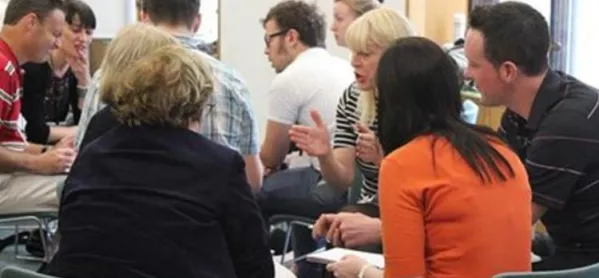Giving new teachers a bigger pay rise than more experienced colleagues could be an option to help improve teacher recruitment, the education secretary has suggested.
Justine Greening told the body responsible for recommending teacher pay rises that it should consider whether it would be “more effective” to take a “more targeted approach” rather than lifting pay by the same amount across the board.
However, she also told the STRB (School Teachers’ Review Body) that it must once again consider its options within the context of a 1 per cent public sector pay cap, and that schools will have to pay for any increase out of their own budgets.
The Department for Education’s submission to the STRB states that the decision to limit pay awards to 1 per cent a year to 2019-20 “will continue to play an important role in delivering the government’s objective of reducing the budget deficit”.
The document provides a table of what each of the five national pay ranges would look like if their “minima” and “maxima” were to be increased by a uniform 1 per cent in 2017-18.
But it then adds: “The STRB will wish to consider the extent to which this will help schools to promote recruitment and retention or whether it would be more effective to provide a more targeted approach - eg, differentiating the increases to the minima and maxima of the ranges.”
Russell Hobby, general secretary of the the NAHT headteachers’ union, said this could involve hiking entry-level salaries to make the profession more appealing to new starters, while not lifting the top of the pay scale.
‘Risk of real-terms pay cuts’
However, he added that if this approach was taken, inflation would result in those at the top of their pay spine seeing their salaries eroded in real terms.
He said: “You could choose to lift the minimum of each of the pay ranges, in order to say, ‘We’re struggling to recruit heads, therefore we’ll increase the bottom end of the leadership pay spine’.
“The inevitable consequence of that is you’re cutting the pay of your most experienced staff. If you’re not raising [pay] by 1 per cent then it’s a real-terms pay cut for those people.”
The DfE acknowledges some risk to schools in its submission, adding: “If the recommendations of the STRB proposed a larger pay award to some teachers than to others, this may result in some schools seeing disproportionate increases in their staffing budgets. This would have the potential to create a risk to their financial security.”
The DfE also says that it still “fully agrees” with last year’s STRB recommendation that schools should have discretion over who receives pay increases, rather than all staff getting a uniform rise.
Schools will have to fund the cost of any pay increases themselves.
According to the DfE’s evidence, a 1 per cent pay increase to all salaries in 2017-18 would cost schools an additional £250 million.
However, the total increase in the schools’ pay bill would be approximately £505 million because of a larger workforce and progression within the profession.
However, Mr Hobby said that schools should not be forced to fund pay increases out of their own pockets.
“It’s not simply a matter of just raising the pay scales - [the government] has to put the money into schools to pay those teachers as well,” he said.
“It’s within its grasp to do so. This isn’t a fact of life, it’s a political choice not to put that money in,” he added.
The STRB will issue its recommendations next year, although the government is not obliged to accept them.
Want to keep up with the latest education news and opinion? Follow TES on Twitter and like TES on Facebook




